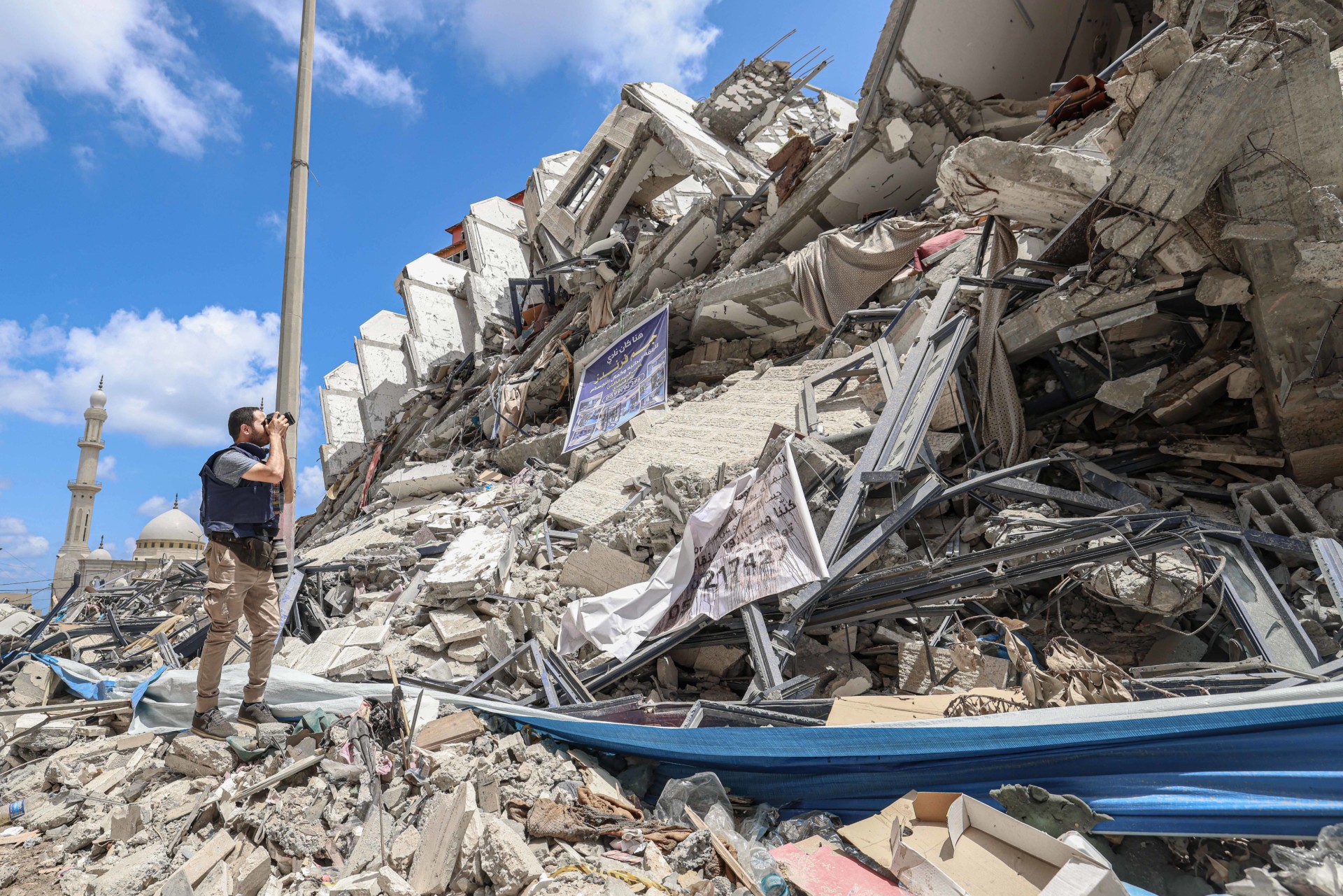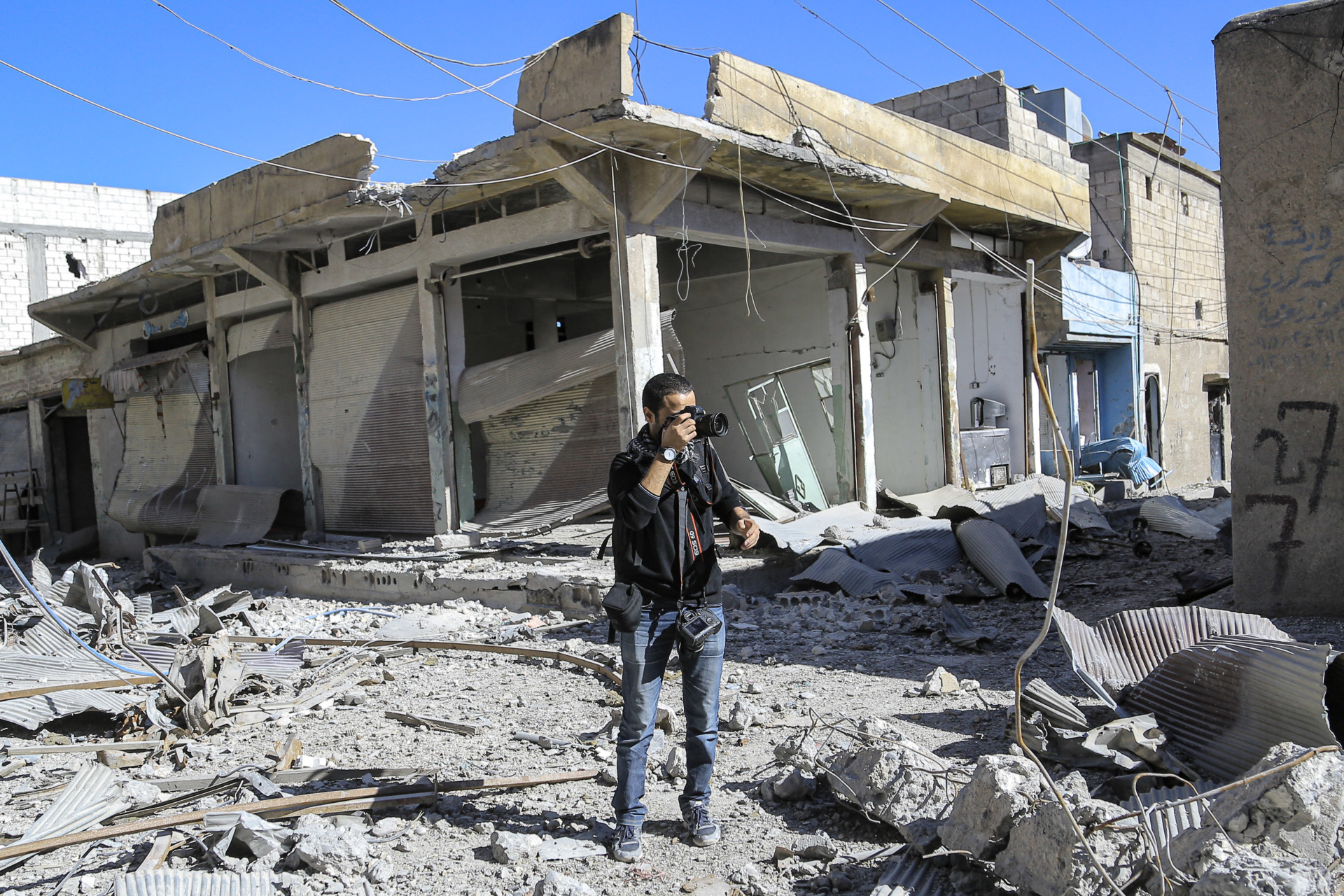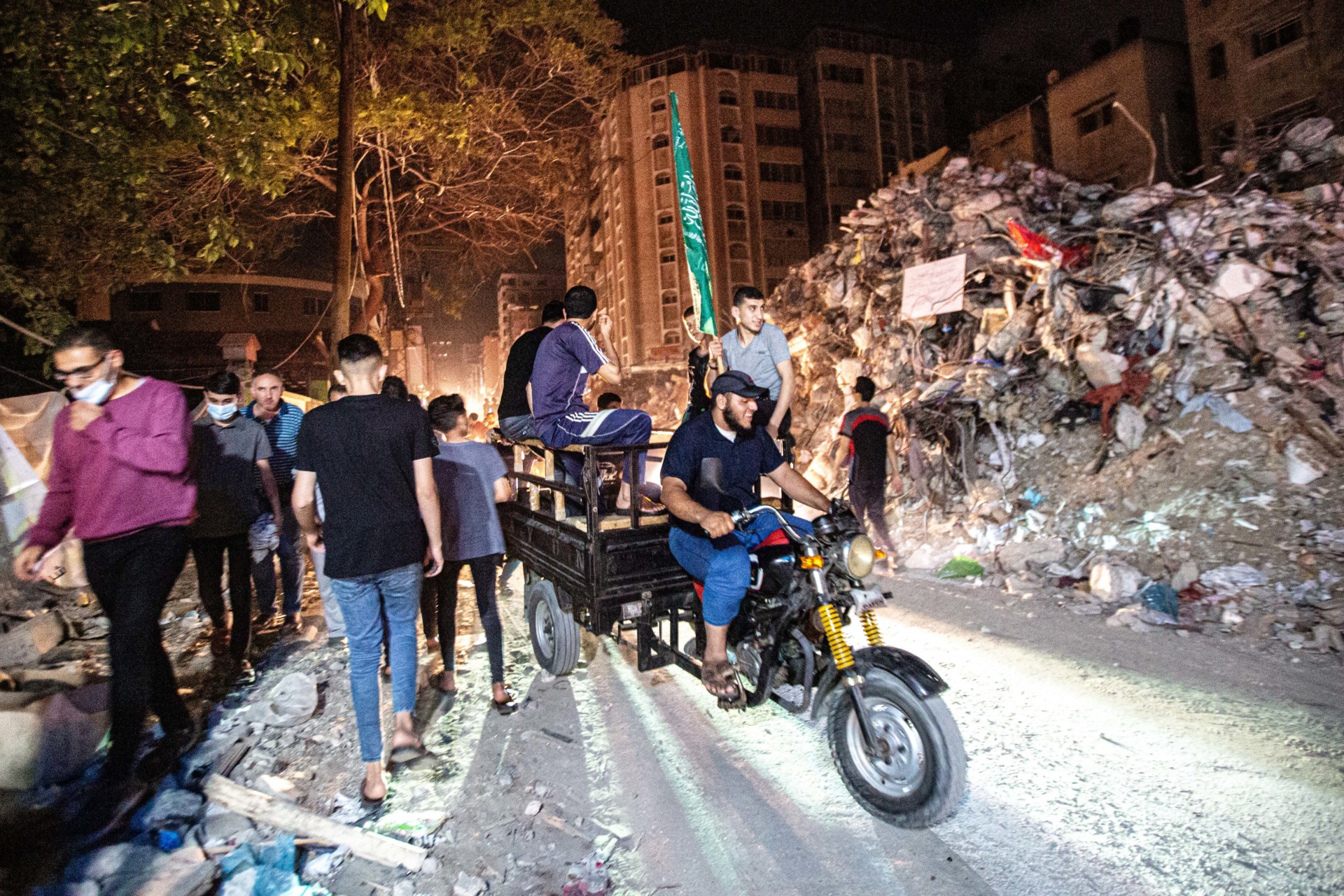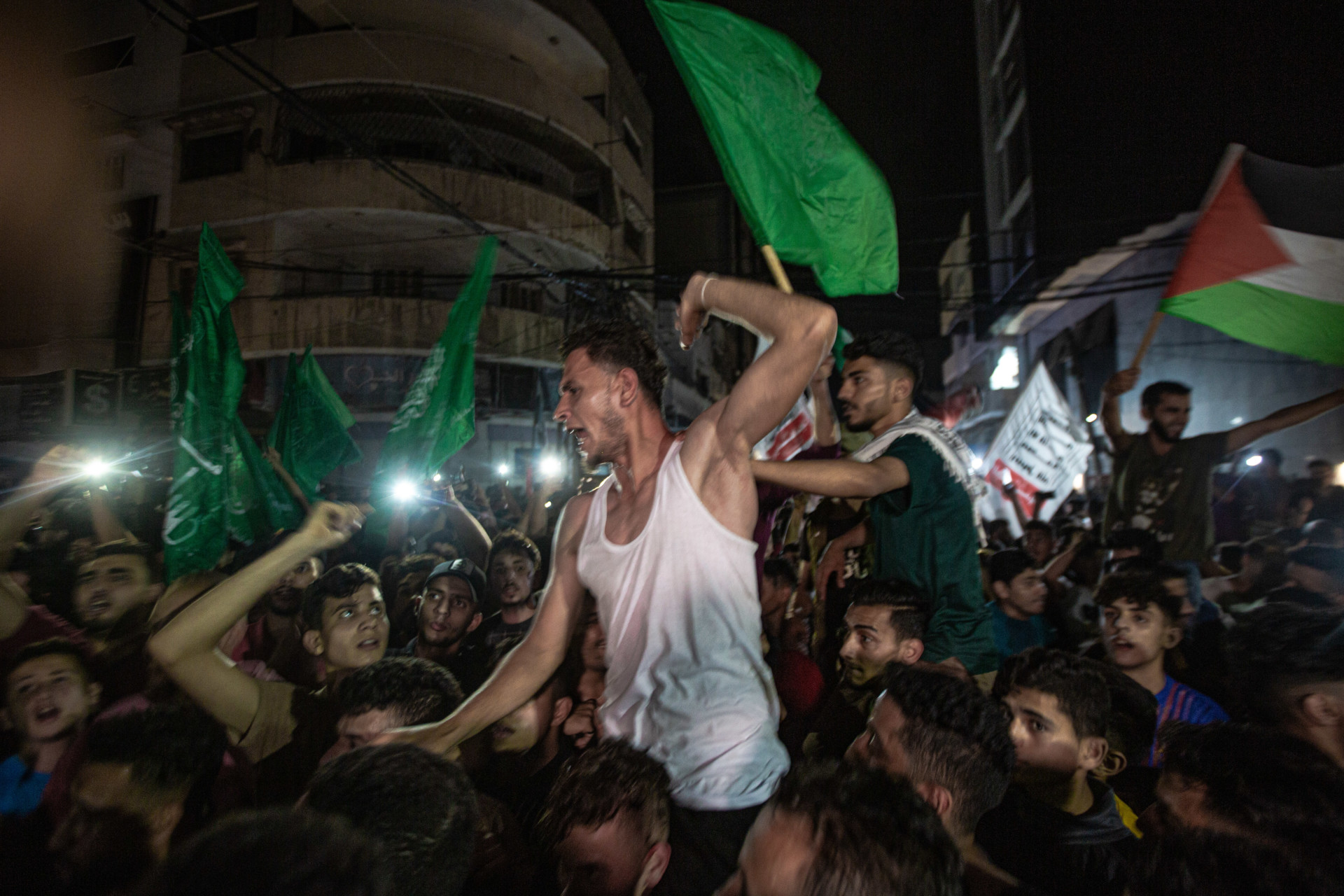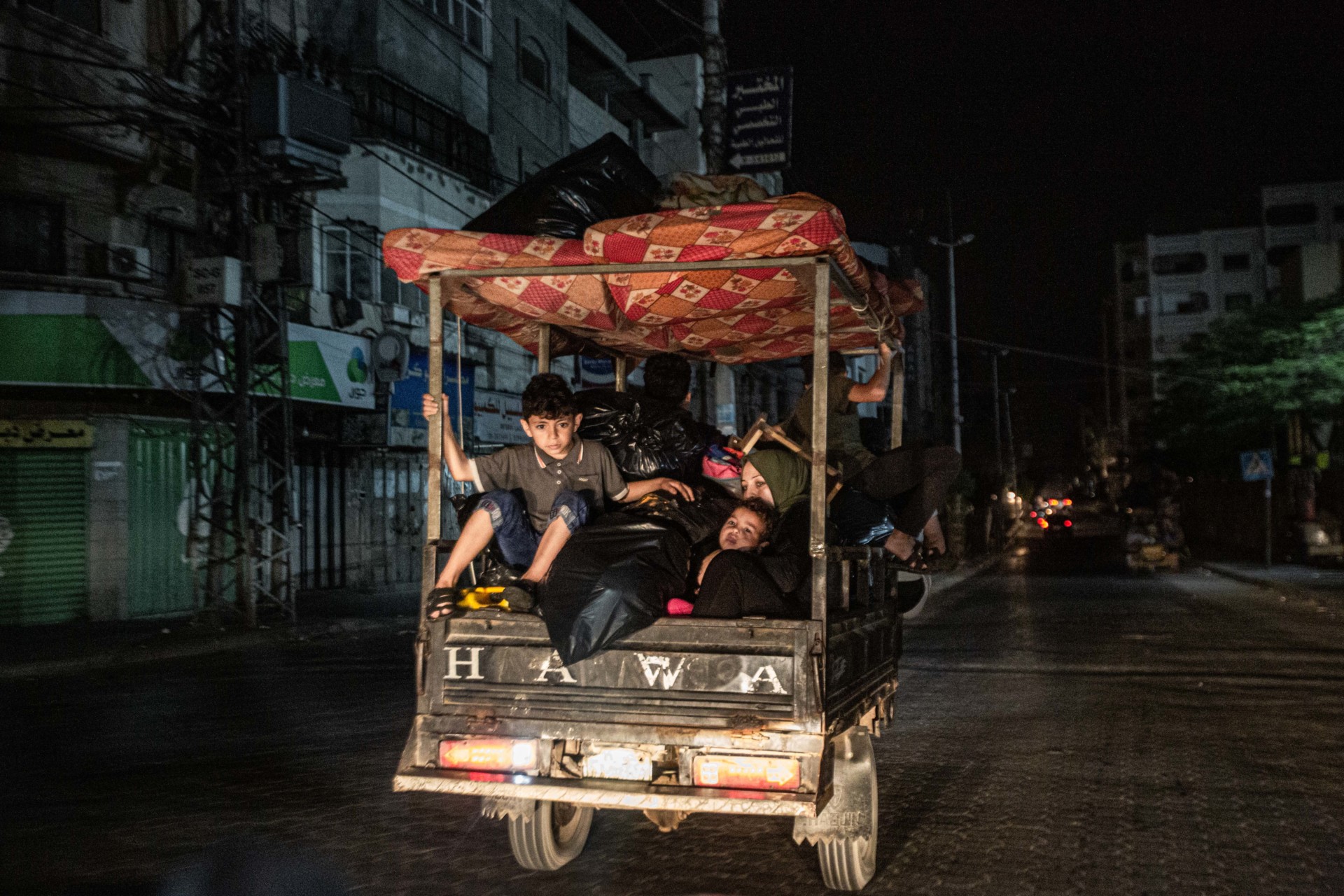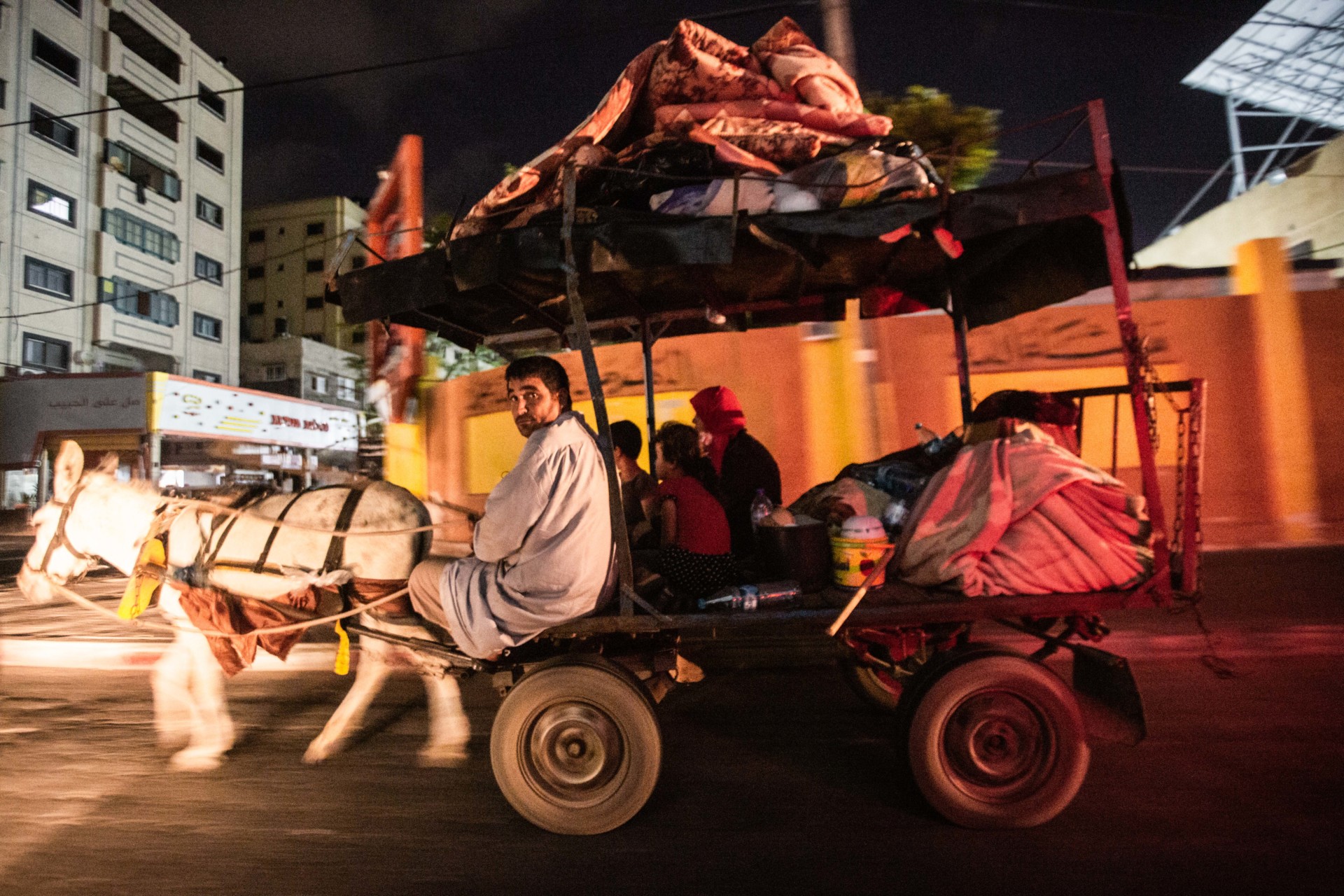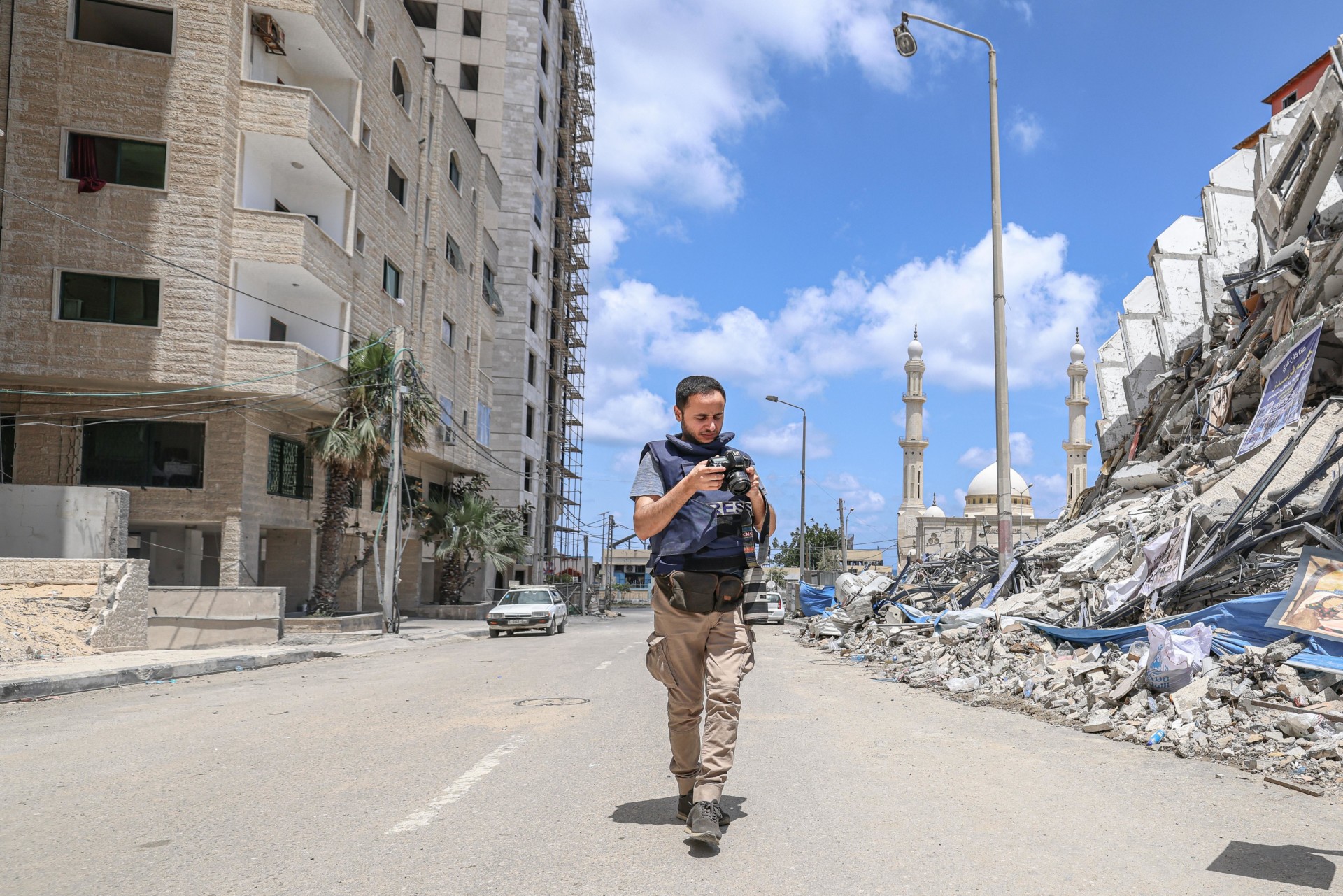With less than an hour before sundown, I entered the Gaza Strip on May 18 and headed for home. My mom had ready a hot plate of maftoul — Palestinian couscous — my favorite dish that she prepares every time I return. But this was not a normal homecoming. I had returned to Gaza to cover a conflict.
I’ve spent a lot of my career as a photographer covering wars and revolutions in other countries. Covering the war in my homeland is different. I am not simply worrying about my own safety but that of my loved ones as well.
The taxi driver at the border assured me he could get me home before dark. At night the streets become dangerous to drive, as Israeli warplanes overhead might target moving objects. He drove fast through empty streets, past the rubble of buildings that had been destroyed in the previous week since the conflict had broken out.
It began May 10 when Hamas, the militant group that governs Gaza, began firing rockets on Jerusalem after Israeli police forces battled Palestinian protesters for weeks at the Al-Aqsa Mosque, a site holy to Muslims. Israel responded with airstrikes and tank shells.
The strikes destroyed public infrastructure such as roads, demolished entire apartment towers, displaced more than 100,000 Gazans, and killed 242 people. In Israel, where an Iron Dome aerial defense system protected the country’s most-populated cities, 12 people were killed.
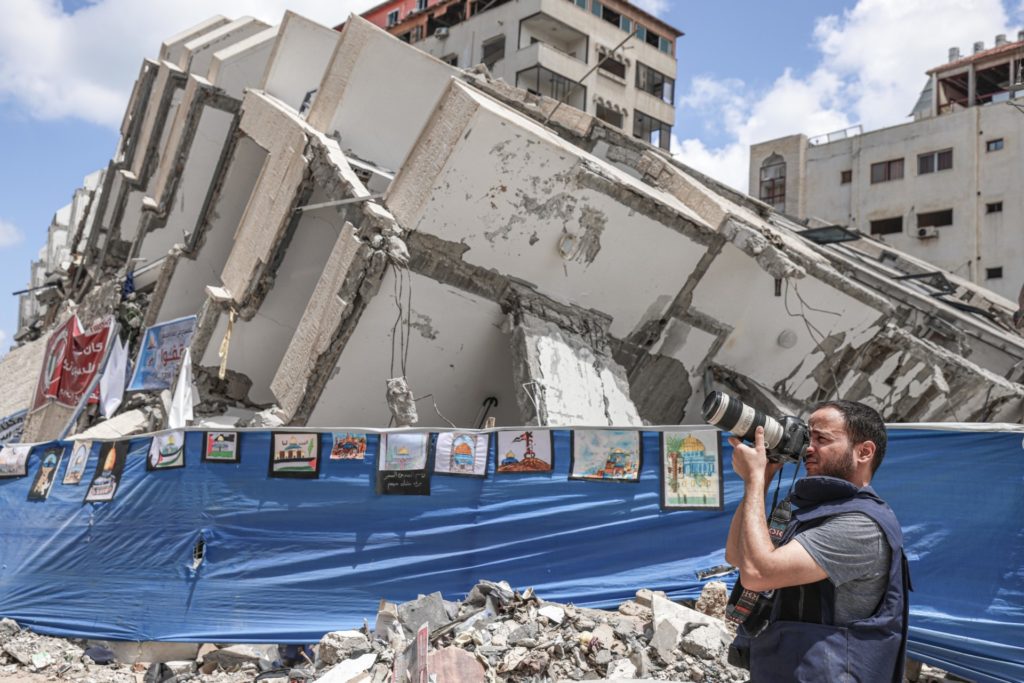
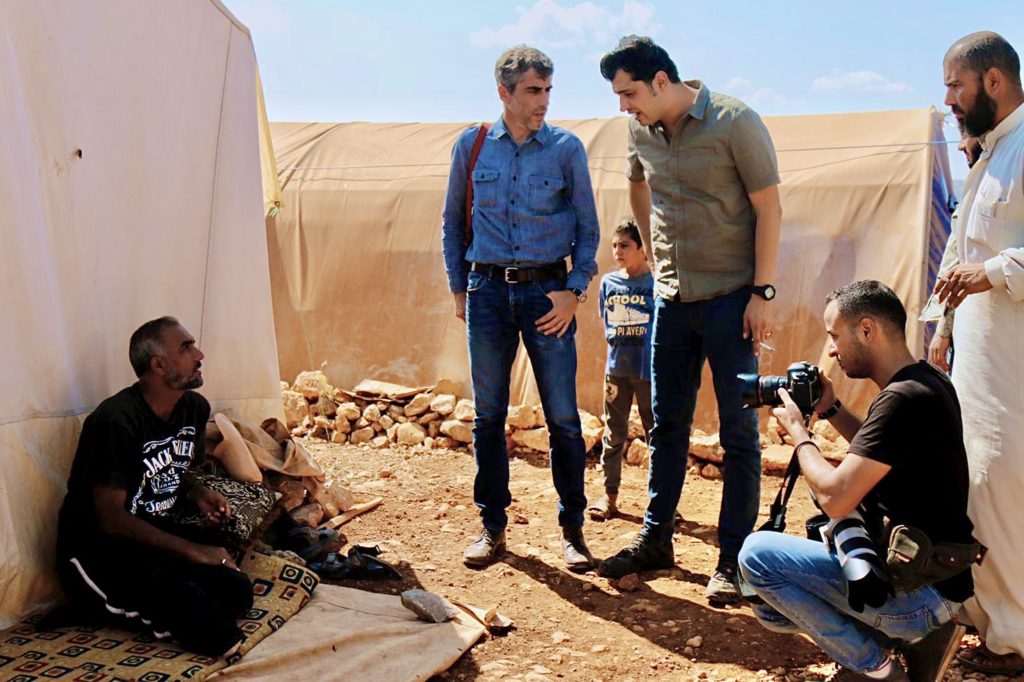
During the 2014 Gaza War between Israel and Hamas, I was hundreds of miles away in the Syrian city of Aleppo, covering another conflict. I would never tell my parents when I entered a war zone, so they wouldn’t worry.
One night, I was in a house with rebel fighters in the Old City of Aleppo and Skyping with my mom — both of us under threat of airstrikes in different countries. I asked the rebels to keep quiet and tried to find a corner in the house, away from the windows and the sound of airstrikes outside. I convinced her I was at my apartment in Istanbul, and everything was fine.
When this latest conflict with Israel started, I was again outside of Gaza. For days I watched the news — on Al Jazeera — from my home in Istanbul. As airstrikes pounded Gaza, I would message my mother, my sisters and brothers, and my friends asking if they were safe. Once I arrived in Gaza, I was the one getting calls from family and friends, checking on me.
My mom always tells me not to go to war zones because she’s afraid of losing me. Now this time in Gaza, she said to me: “It’s OK because I am next to you!” It’s funny how moms think.
Witnessing children and civilians being killed is always very hard for any journalist. It’s even harder when it could be someone you know.
In 2008, during the first Gaza War, I lost 11 members of my family when a United Nations school was hit with Israeli missiles, killing my grandmother, my uncle, and several nieces and nephews.
That is always on my mind here. When I take pictures of a child who has been killed, it reminds me of my cousin Mustapha, who was about 12 when he was killed. And when I see families mourning their loved ones, I have flashbacks to 2008, when I was one of those mourners.
Being away isn’t easy, either.
I don’t want to say that I would prefer to be in Gaza in case something happens to someone I love. But at the same time, I wouldn’t want to be far away. When my father passed away from a heart attack in 2016, I was outside of Gaza and couldn’t get back home in time to say goodbye and have a last look at him because the Egyptian and Israeli border crossings were closed. I hadn’t seen him for two years.
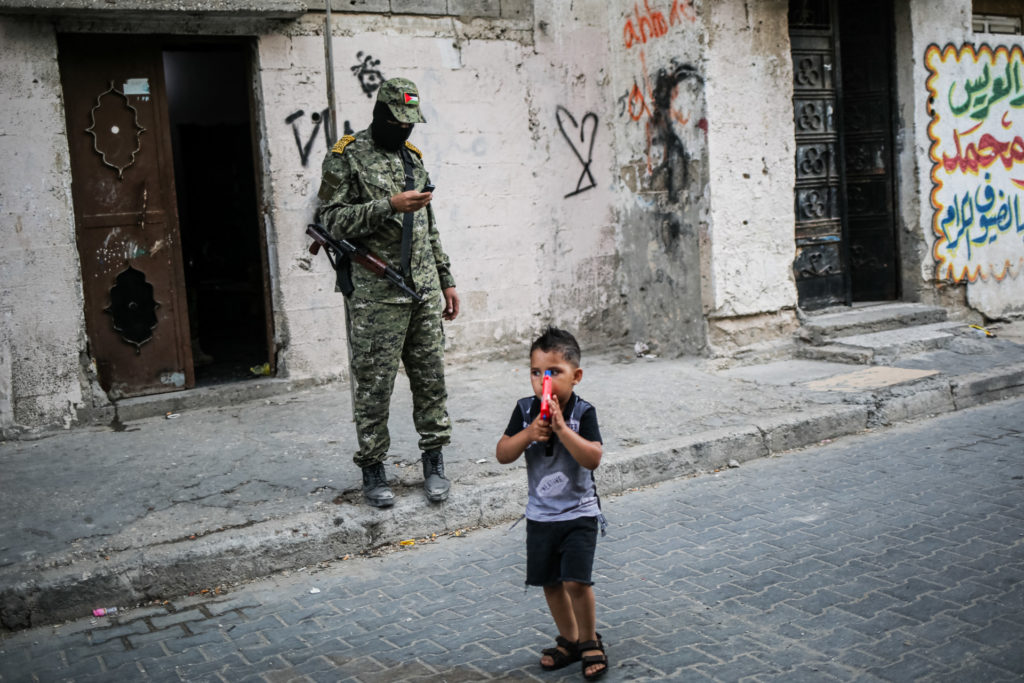
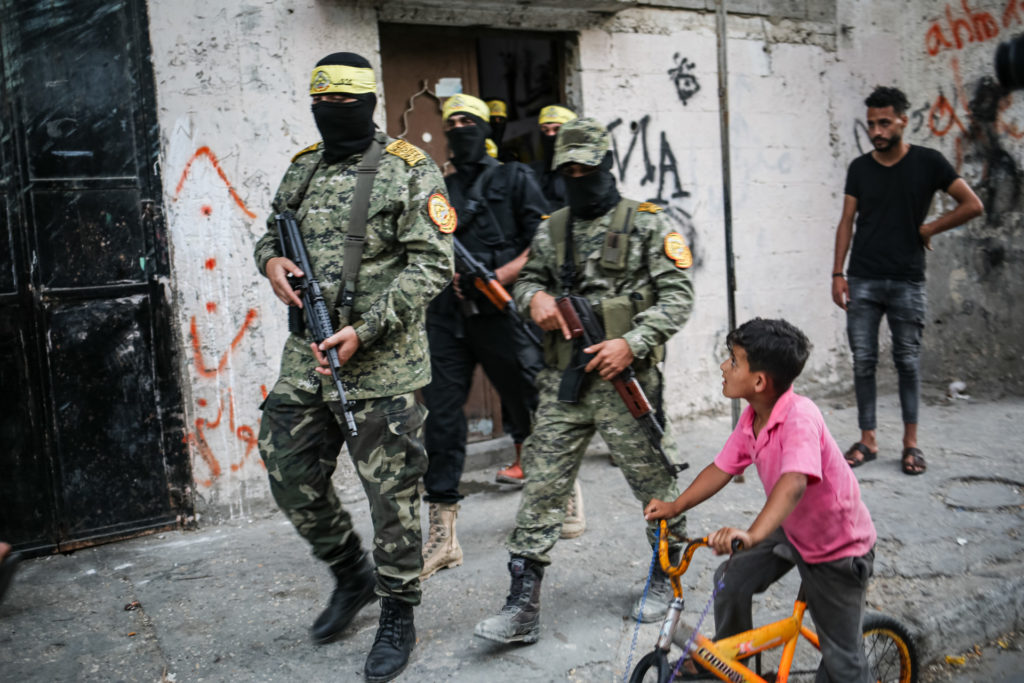
When I returned to Gaza after the 2014 war, I barely recognized some areas. So many houses had been destroyed, and an entire neighborhood had been wiped out by Israeli airstrikes.
This time, I was here to witness the destruction of the city’s landmarks, towers, and houses. Gaza is very small. Wherever there was an airstrike, I usually knew exactly where it was or knew someone who lived nearby.
On May 16, my uncle’s newly built house in the southern Gaza Strip was mostly destroyed when Israel fired two missiles at a nearby three-story building. Israeli intelligence had called someone in the neighborhood at 6:30 a.m. warning that the building would soon be targeted. Neighbors said one of the commercial tenants of the building was a member of Islamic Jihad.
I hadn’t been able to visit my uncle since I arrived because I was busy chasing the news, covering the aftermath of airstrikes, and working on different stories. Even when the airstrikes stopped, my obligation to work didn’t.
Friday, May 21 was the first day of the cease-fire. It is also the day Palestinian families traditionally gather for a feast after Friday prayers. My mom, my six sisters, two brothers, and I would finally be able to gather together. My mom cooked mandi, a meat and rice dish I had requested.
I spent that morning in northern Gaza near the Israeli border taking photographs of the destruction in areas we had not been able to reach during the bombardment.
I had planned to be back home in time for the meal. But before I could head back, we got news about a funeral procession by Hamas militants for one of the leaders killed during the war. I had to go cover it.
I felt like I was between two fires: my obligation to work and my obligation to my family. My mom said it was OK, but I knew deep down she was sad. She made this dish for me, and I didn’t show up.
Five hours later, my brother came to pick me up so that we could finally go visit my uncle. My mom was sitting in the backseat holding a plate of mandi and yogurt.
It was already cold. As my brother drove south, I sat next to my mom and ate mandi. It tasted like home.



